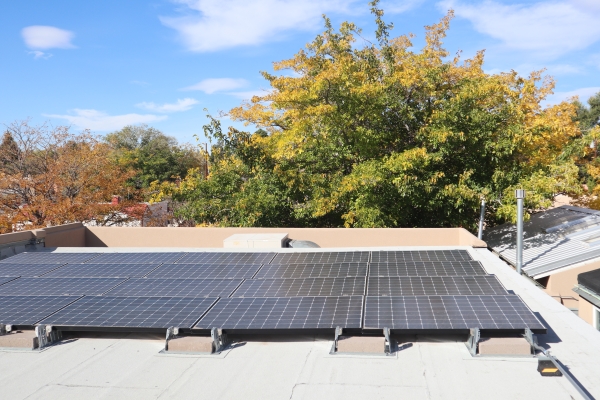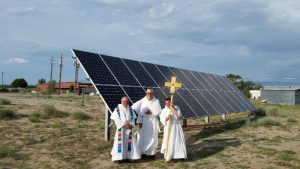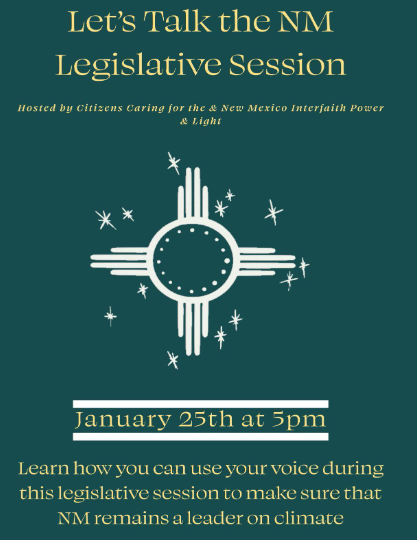Twenty Three Congregations in New Mexico Have Installed Solar Panels
According to a new survey by the national Interfaith Power & Light, congregations from all faith traditions in the United States have dramatically increased their investments in solar PV systems for both their environmental and financial benefits. Interfaith Power & Light (IPL) completed its third survey of congregations in the United States with solar Photovoltaic (PV) systems in December 2021. See the full list on IPL’s website.
IPL’s survey found:
- A total of 1,250 congregations with PV systems in 48 states and the District of Columbia.
- The 480 congregations added in the past two years exceeds the 400 additions identified in the 2019 biennial survey.
- The combined PV capacity of congregational PV systems is 105 Megawatts (MW), approaching the installed solar capacity of Facebook, the 10th largest commercial user based on most recent SEIA data.
In a press release announcing its findings, IPL quoted Franciscan Father Tom Smith, director of the Holy Cross Retreat Center in Mesilla, NM.
“We are strong believers in the importance of caring for our common home, as spoken by Pope Francis in Laudato Sí. As part of that commitment to care for the Earth and who we are and as part of our Franciscan tradition, we have decided to have 200 solar panels… We do this because the sun is always there, especially in southern New Mexico. There’s lot of sun to provide energy for us and to reduce the use of carbon and oil and gas. We believe that it’s important for us to do our part to help people see the need to change the climate. It’s been a reality that our world is being affected. We want to keep it as natural as we can.”
Solar Congregations in New Mexico
Here are the 23 congregations, houses of worship and retreat centers in New Mexico listed among the 1,250 sites on the IPL national data base.
- Albuquerque Mennonite Church Albuquerque NM
- Bethany Christian Reformed Church Gallup NM
- Chelwood Christian Reformed Church Albuquerque NM
- Congregation Albert Albuquerque NM
- Congregation Nahalat Shalom Albuquerque NM
- First Presbyterian Church Albuquerque NM
- First Presbyterian Church of Taos Taos NM
- First Unitarian Church, Albuquerque, NM Albuquerque NM
- Friends Meeting Albuquerque NM
- Holy Cross Retreat Center Mesilla NM
- Las Placitas Presbyterian Church Placitas NM
- Monastery of Christ in the Desert Abiquiu NM
- Nativity of the Blessed Virgin Mary Albuquerque NM
- Norbetine Community (2015) Albuquerque NM
- Our Lady of the Most Holy Rosary Catholic Community Albuquerque NM
- Prince of Peace Catholic Community Albuquerque NM
- Santa Maria de la Vid Norbertine Abbey Albuquerque NM
- St. Anne Catholic Parish Santa Fe NM
- St. John XXIII Catholic Community Albuquerque NM
- St. Mark’s on the Mesa Episcopal Albuquerque NM
- St. Therese Catholic School Albuquerque N
- St. Thomas of Canterbury Episcopal Church Albuquerque NM
- United Church of Santa Fe Santa Fe NM



